Imagine living where over 640 million people, including children, cannot access electricity. Unfortunately, this is a harsh reality for many Africans. Shockingly, the electricity access rate for African countries is just over 40 percent, the lowest in the world. The use of fuel wood for cooking has also had a devastating impact on the health of Africans. A report by the African Development Bank (AfDB) estimates that 600,000 Africans, mostly women and children, die annually due to indoor air pollution caused by this method, and over 90% of Africa’s primary schools lack electricity, leading to under-performance by children. Many lives are at risk in African hospitals due to the lack of electricity, and life-saving equipment and services go to waste because of the limited access to electricity. [1]
The energy sector in Africa is experiencing remarkable growth, and with it comes an unprecedented opportunity for women, youth, and persons with disabilities to tap into this burgeoning market. Historically, these groups have been marginalised in the energy sector, but times are changing. With governments making concerted efforts to promote gender equality, youth empowerment and disability inclusion, there has never been a better time for these groups to take advantage of the growing market opportunities in the energy sector.
The Women in Energy Conference series launched by the Graça Machel Trust (GMT), with support from Sasol-Mozambique and the Foundation for Community Development / Fundação para o Desenvolvimento da Comunidade (FDC) on 9th May 2023, under the theme “Laying the Foundation for an enabling environment for Women in Energy” created a platform for women to share their experiences and ideas that will help break the barriers that prevent women from fully participating in the energy sector.
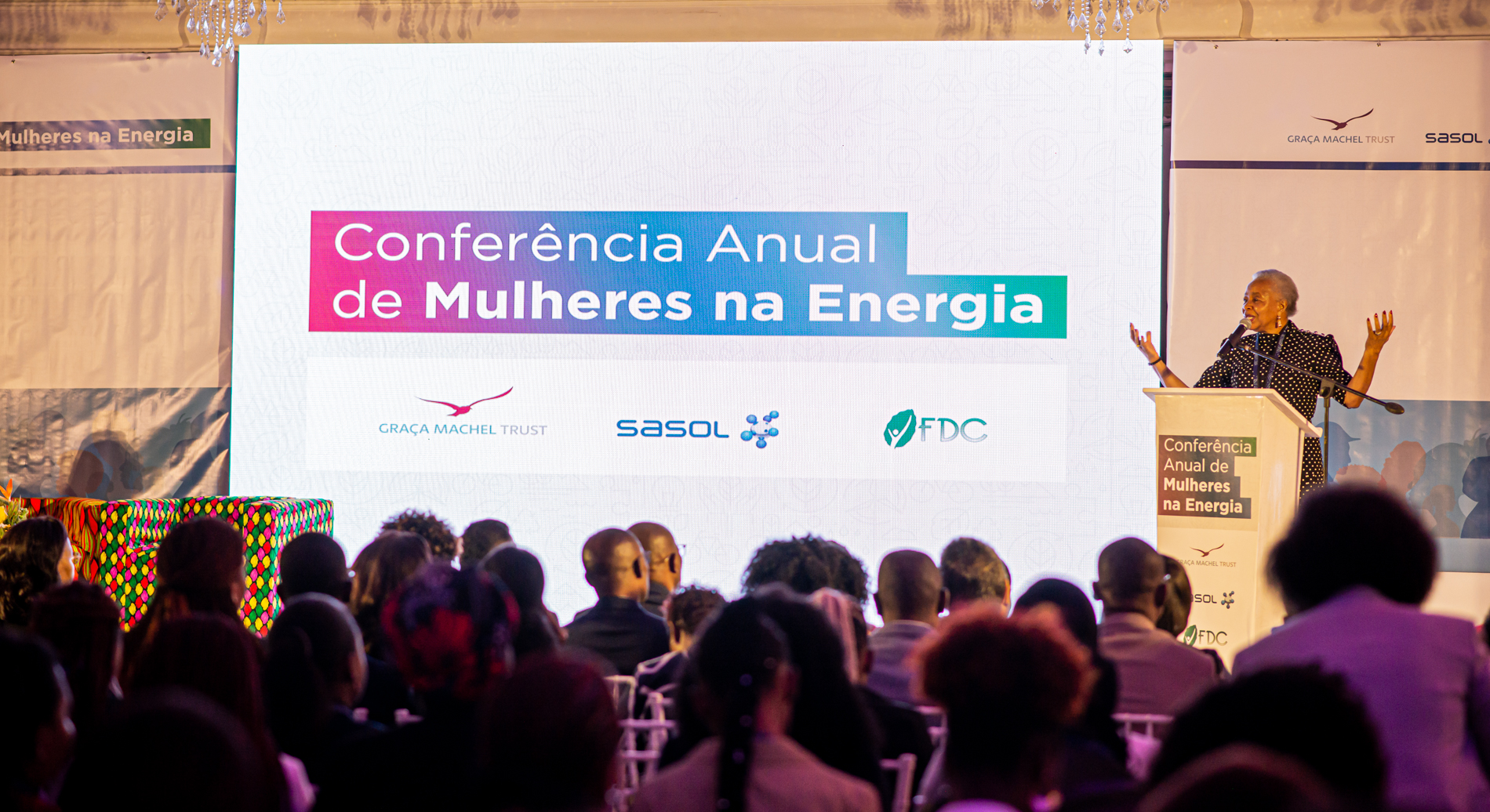
In her opening remarks, HE Graça Machel, Founder of GMT and FDC, who joined other patrons in sustainable energy at the Conference, said African countries must achieve universal access to electricity and lift their populations out of poverty. Without this investment, the energy transition will be delayed, and the standard of living will remain deficient. She said, “African countries stand no chance of lifting their people out of poverty and achieving a decent standard of living for all without affordable, reliable, and sustainable electricity.”
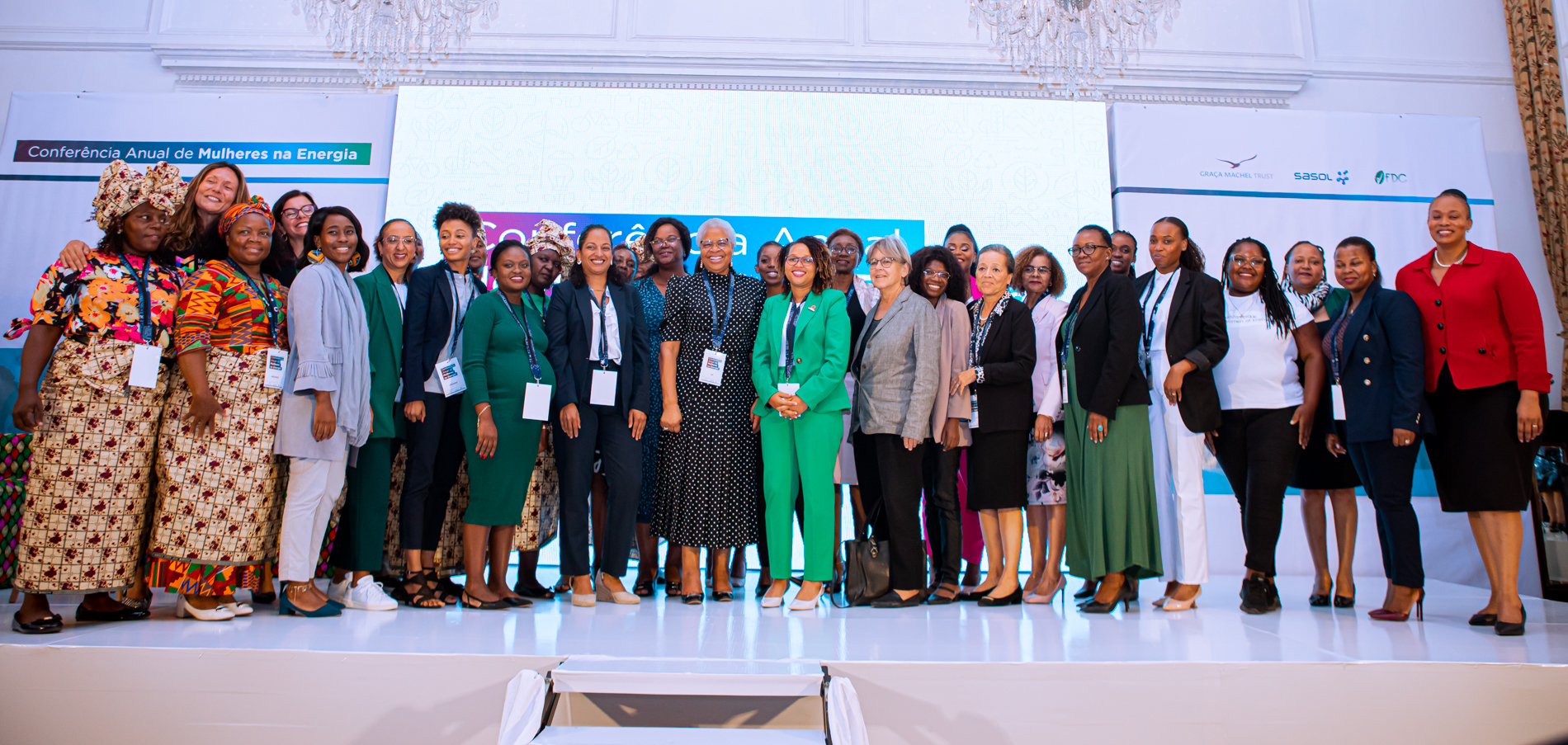
Mozambique Women in Energy
Mrs. Machel also recognised the growing innovations by Micro, Small, and Medium Enterprises (MSME), an important enabler of sector development, cost reduction, and broad-based access to energy.
“Mozambique Women in Energy have played a pivotal role in being the think tank pillar through participation in the drafting and reviewing policy and legal instruments such as the electricity law, legal, regulatory instruments for Access to Energy in Off Grid Areas, and the Energy Strategy. They have been a building pillar by providing capacity-building programs for young energy practitioners, and capacity-building of Women-Owned Businesses in the energy value chain.” – HE Graça Machel.
Mrs Priscillah Mabelane, the Executive Vice President of Sasol, has been advancing Sasol’s aspirational vision to lead the Just Energy Transition in Southern Africa. Her presence at the Conference brought hope to the participants when she recognised the path to placing women in important energy sector positions. She said, “While we recognise that there is still a long road to be travelled, we have seen first-hand the transformative power of diversity and inclusion. We believe working together can create a more sustainable and equitable energy future for all.”
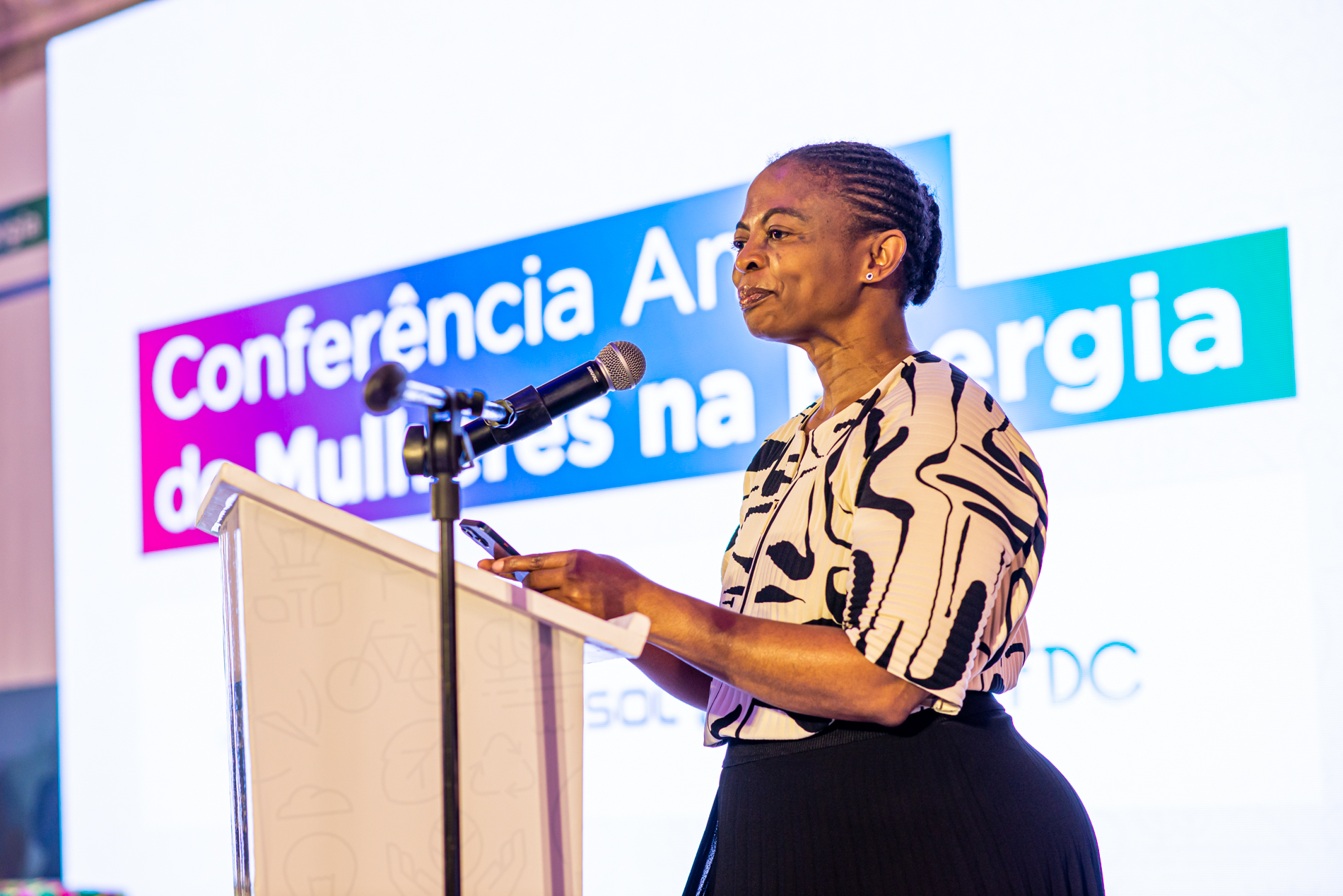
“That is why we are proud to partner with the Graça Machel Trust in launching this Women in Energy Conference initiative. Over the next three years, we will create an annual conference that will provide a platform for women in Mozambique’s energy sector to share their experiences, insights, and ideas and build meaningful connections with each other.” – Priscillah Mabelane, Executive Vice President of Sasol.
Through this innovative initiative, the Graça Machel Trust will create a platform for women to access markets, technology, finance, networks, and skills development. The Trust’s Director of Programmes, Ms. Shiphra Chisha, called on the support and collaborative efforts across government, civil society, and the private sector for the continent to achieve universal access to electricity by 2030. She highlighted the work done by the Trust to contribute to the sector. “We have decided it is time to take a leading role in Africa’s energy and power sector. We want to champion the plight of women, youth, and persons with disability through a portfolio of projects, assets, and interventions directed at entrenching these marginalised groups in existing and emerging value chains.”
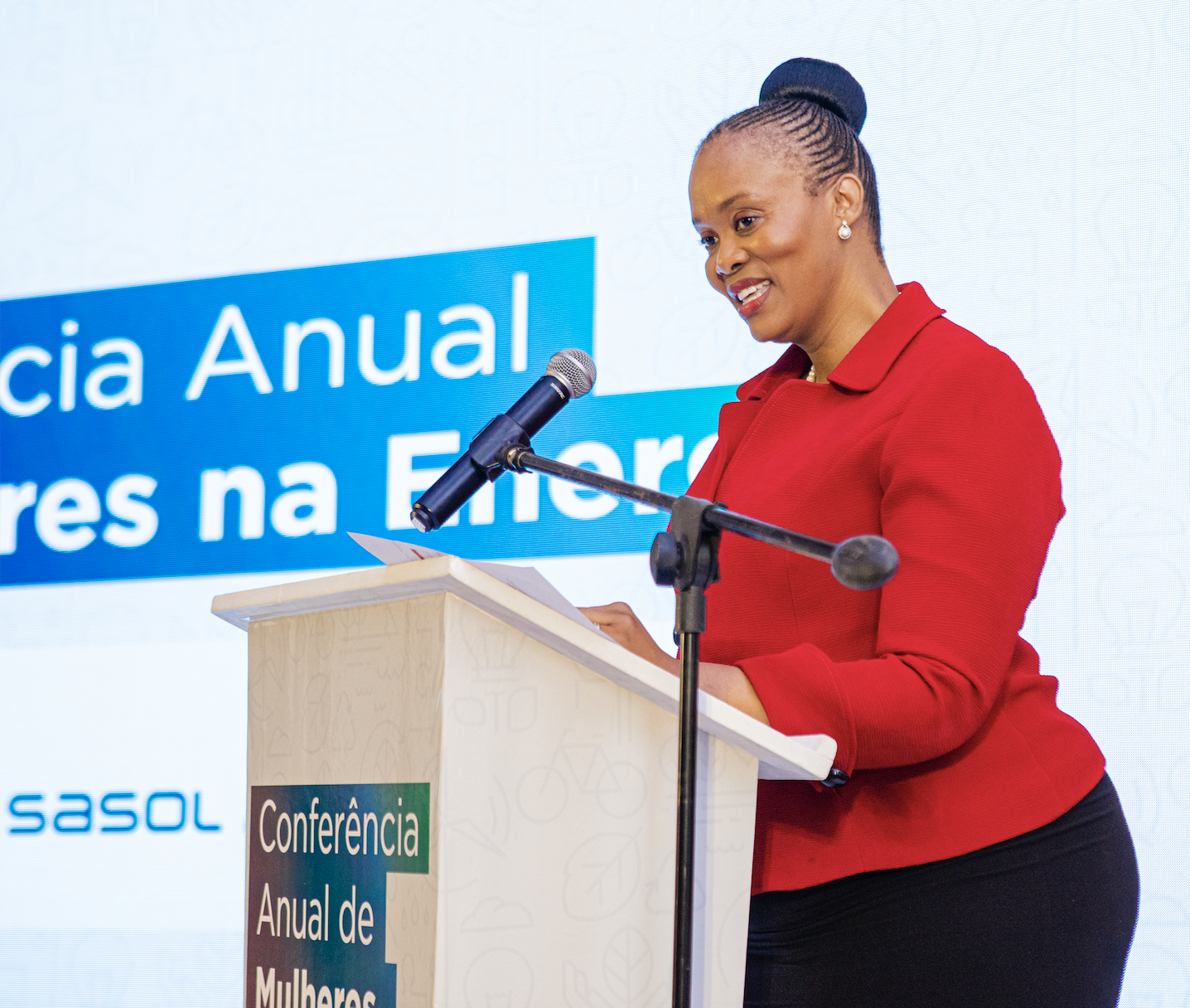
“We want to call women to be the vanguards of electricity solutions on the continent. We want businesses, government, and civil society to look to us for tailored and targeted solutions to realise an inclusive energy ecosystem.”- Ms. Shiphra Chisha, Director of Programmes of GMT.
The Conference brought together key stakeholders in Africa’s Energy and Power Ecosystem. It allowed women to network and build relationships with industry leaders and experts to help increase their visibility and create a pipeline of talented women who can take on leadership roles in the sector. Other speakers at the launch included Deputy Director of the National Directorate of Energy in the Ministry of Mineral Resources and Energy (MIREME) for Mozambique, Ms. Marcelina Mataveia, Dr. Diogo Milagre, Executive Board Member Fundação para o Desenvolvimento da Comunidade (FDC), as well as experts from key economic sectors including energy, finance, and women entrepreneurs.
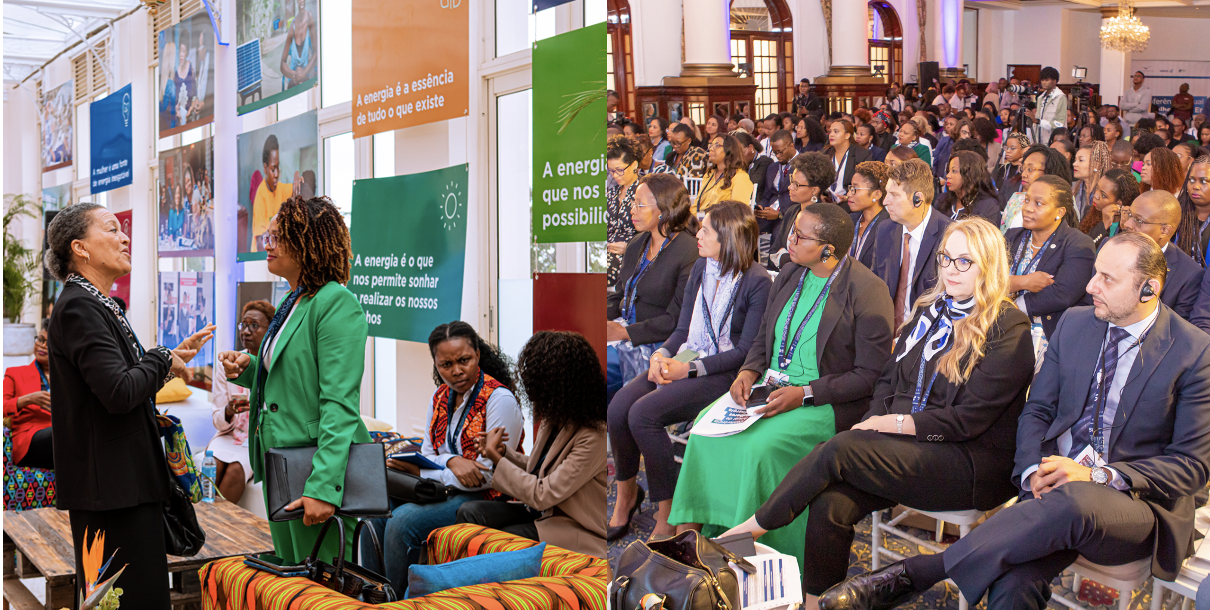
Some of the participants at the Women in Energy Conference. The Conference brought together key stakeholders from Africa’s Energy and Power Ecosystem.
Read more about GMT- SASOL- FDC Women In Energy Conference Series Launch here
Reference
[1] https://www.afdb.org/fileadmin/uploads/afdb/Documents/Generic-Documents/Brochure_New_Deal_2_red.pdf










 The Trust supports and mobilises civil society networks on issues of ending child marriage, ending violence against children, ending female genital mutilation and promoting children’s rights, to carry out advocacy and action across Africa. Special focus is placed on Malawi, Mozambique, Tanzania and Zambia where child marriage continues to be a problem largely driven by poverty, gender inequality, harmful traditional practices, conflict, low levels of literacy, limited opportunities for girls and weak or non-existent protective and preventive legal frameworks.
The Trust supports and mobilises civil society networks on issues of ending child marriage, ending violence against children, ending female genital mutilation and promoting children’s rights, to carry out advocacy and action across Africa. Special focus is placed on Malawi, Mozambique, Tanzania and Zambia where child marriage continues to be a problem largely driven by poverty, gender inequality, harmful traditional practices, conflict, low levels of literacy, limited opportunities for girls and weak or non-existent protective and preventive legal frameworks.




 Education is a fundamental right for all children, which is also a vehicle for social, economic and political transformation in communities, countries and the African continent at large. Recent studies indicate a lack of progress in some of the critical commitments aimed at improving education quality, access, retention and achievement, particularly for girls. In most African countries, girls may face barriers to learning, especially when they reach post-primary levels of education. By implementing multi-dimensional approaches to education which includes core education, personal development, life skills and economic competencies, the Trust partners with funding partners, governments, civil societies and the private sector to improve education access.
Education is a fundamental right for all children, which is also a vehicle for social, economic and political transformation in communities, countries and the African continent at large. Recent studies indicate a lack of progress in some of the critical commitments aimed at improving education quality, access, retention and achievement, particularly for girls. In most African countries, girls may face barriers to learning, especially when they reach post-primary levels of education. By implementing multi-dimensional approaches to education which includes core education, personal development, life skills and economic competencies, the Trust partners with funding partners, governments, civil societies and the private sector to improve education access.

 The Nutrition and Reproductive, Maternal, New-born, Child and Adolescent Health and Nutrition, (RMNCAH+N) of the Children’s Rights and Development Programme aims at promoting the Global Strategy for women, children and adolescents’ health within the Sustainable Development Goals (SDG) agenda. The strategy emphasises on the importance of effective country leadership as a common factor across countries making progress in improving the health of women, children and adolescents.
The Nutrition and Reproductive, Maternal, New-born, Child and Adolescent Health and Nutrition, (RMNCAH+N) of the Children’s Rights and Development Programme aims at promoting the Global Strategy for women, children and adolescents’ health within the Sustainable Development Goals (SDG) agenda. The strategy emphasises on the importance of effective country leadership as a common factor across countries making progress in improving the health of women, children and adolescents. Through its Early Childhood Development (ECD) plan, The Trust will seek to put into action the new science and evidence Report that was presented by Lancet Series on Good and early development – the right of every child. This will be achieved by mobilising like-minded partners to contribute in the new science and evidence to reach all young children with ECD. The Trust’s goal is to be a catalyst for doing things differently, in particular, to rid fragmentation and lack of coordination across ECD sectors. In response to evidence showing the importance of political will in turning the tide against the current poor access and quality of ECD. Even before conception, starting with a mother’s health and social economic conditions, the early years of a child’s life form a fundamental foundation that determines whether a child will survive and thrive optimally.
Through its Early Childhood Development (ECD) plan, The Trust will seek to put into action the new science and evidence Report that was presented by Lancet Series on Good and early development – the right of every child. This will be achieved by mobilising like-minded partners to contribute in the new science and evidence to reach all young children with ECD. The Trust’s goal is to be a catalyst for doing things differently, in particular, to rid fragmentation and lack of coordination across ECD sectors. In response to evidence showing the importance of political will in turning the tide against the current poor access and quality of ECD. Even before conception, starting with a mother’s health and social economic conditions, the early years of a child’s life form a fundamental foundation that determines whether a child will survive and thrive optimally.